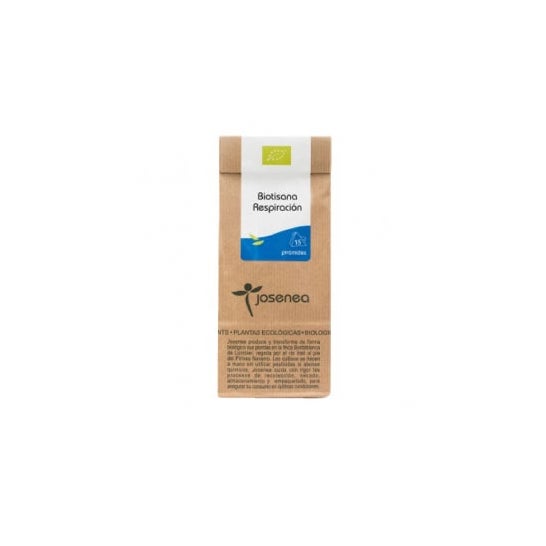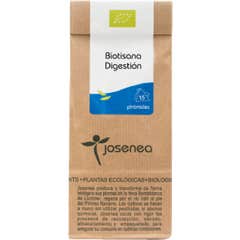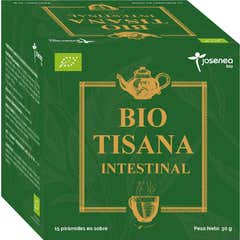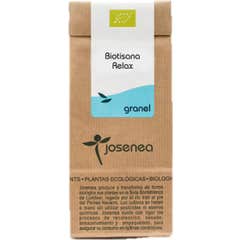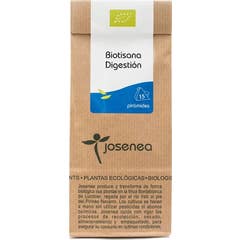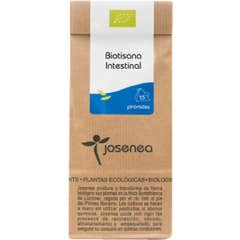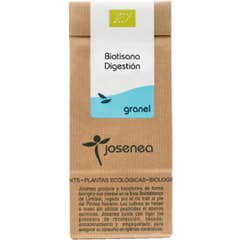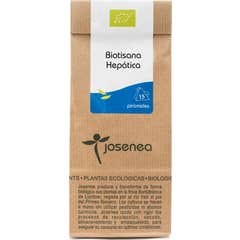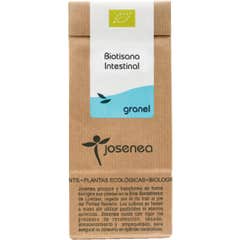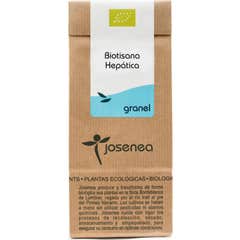Josenea Biotisana Breathing 15 Pyramids
Description
Instructions for use
Place the tea bag in a cup or teapot with water and steep for as long as necessary. Then remove the bag and drink hot or cold. Read the directions on the package before brewing. Water temperature, as well as steeping time, may vary according to the type of tea or infusion.
Pharmaceutical Advice
Sage (Salvia Officinalis) is a wild, aromatic Mediterranean plant that is well known for its traditional use in health care. Its active principles, such as Rosmarinus acid, are recognised by the European Pharmacopoeia and are attributed with antioxidant, digestive and antibacterial properties. It is a plant with multiple qualities which can be ingested as a dietary supplement or infused as herbal tea. It can also be used topically, in creams or lotions. Some dietary supplements for support during perimenopause and menopause contain sage extract, as it helps to mitigate hot flashes and other discomforts. Its emmenagogue properties also help regulate menstruation. In topical use, in the oral cavity (as an infusion or extract for gargling), it is anti-inflammatory and antiseptic thanks to the components of its essential oil. It helps soothe the throat and irritated oral mucosa. Sage also helps regulate digestion and is useful to relieve mild dyspepsia. Ongoing use of this plant extract, or use in high doses, should be avoided as it may have undesirable effects. Oral intake or use of sage essential oil is clearly contraindicated during pregnancy and breastfeeding. It is very important to always follow the indications and dosage indicated by the manufacturer. If in doubt, taking medication or in specific situations, it is essential to consult a healthcare professional.
Safety and product information
Safety visual aids
At this time we do not have safety images for this product, but we are working on it. We encourage you to check back later for updates. In the meantime, we recommend that you read the safety information that comes with the product before using it. If you have any questions about safety, please do not hesitate to contact us. Also, if you wish, you can also return the product by following our terms and conditions.
Manufacturer details
Manufacturing data details relevant information from the product manufacturer.
Equisalud
Pol. Ind. Areta, Calle H, 2-A, 31620, Huarte Navarra
equisalud@equisalud.com
https://www.equisalud.com/
RELATED SEARCHES ABOUT Cough
New in For Colds
- Em-Eukal Vitamin Shot Caramelos Sin Azúcar 75g
- Veltuss Garganta Irritada 24comp
- Terapharma Tussis Solucion Oral 200ml
- Herbis Té Nro 5 100g
- Eric Favre No Rub Défenses Naturelles 200ml
- Panda Tea Cofre de Té Navideño Roue Enchan Thé
- Novapharm Bromenat 30comp
- Cupper Infusión Winter Warm Hug Bio 20 Sobres
- Cupper Infusión Winter Liquorice Bio 20 Sobres
- The Capsoul Té Granel Blanco Pai Mu Than 60g

